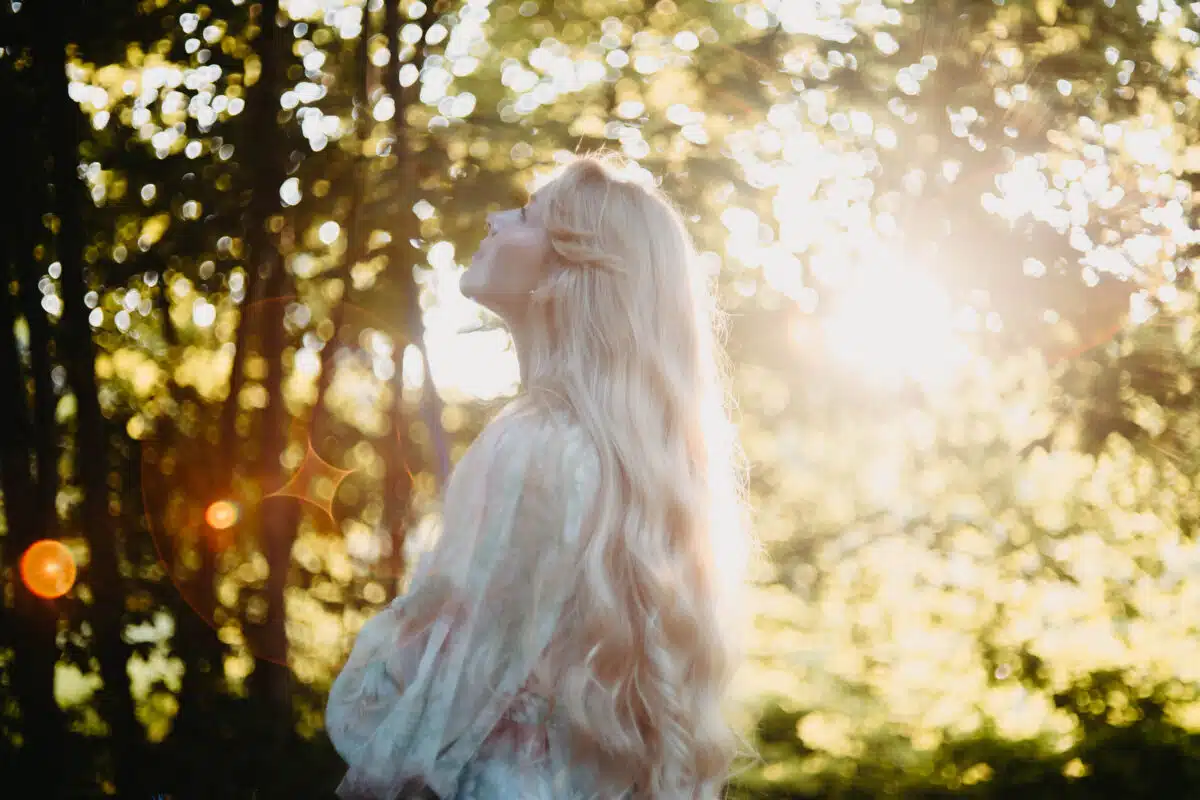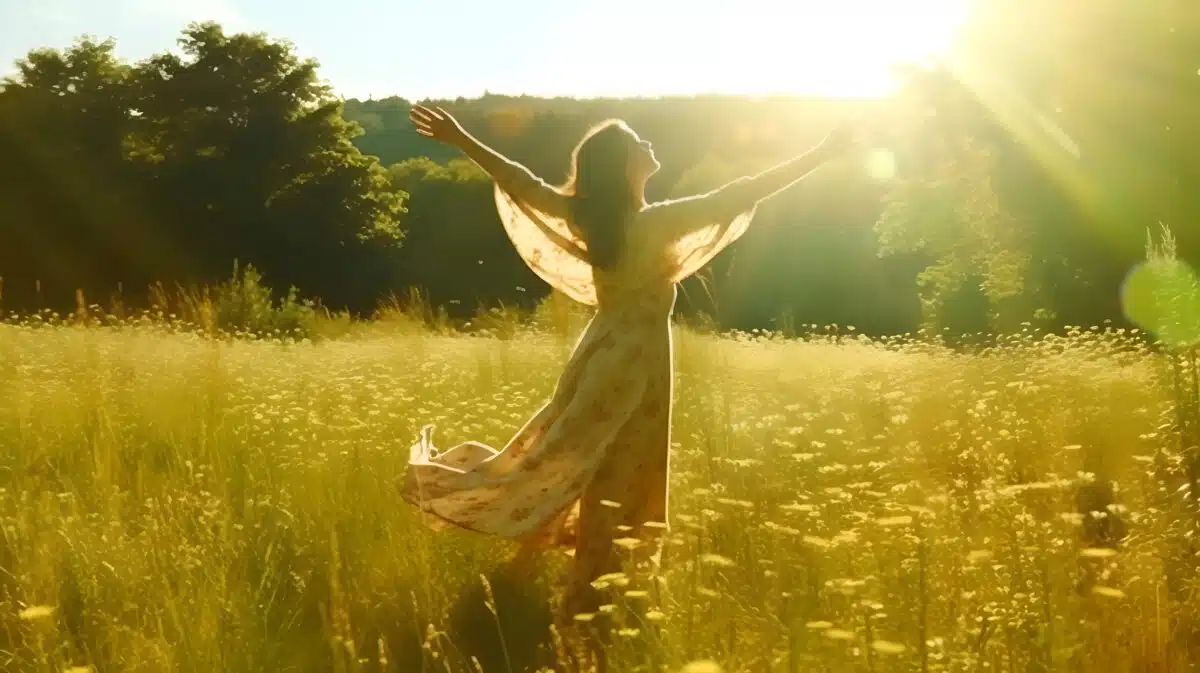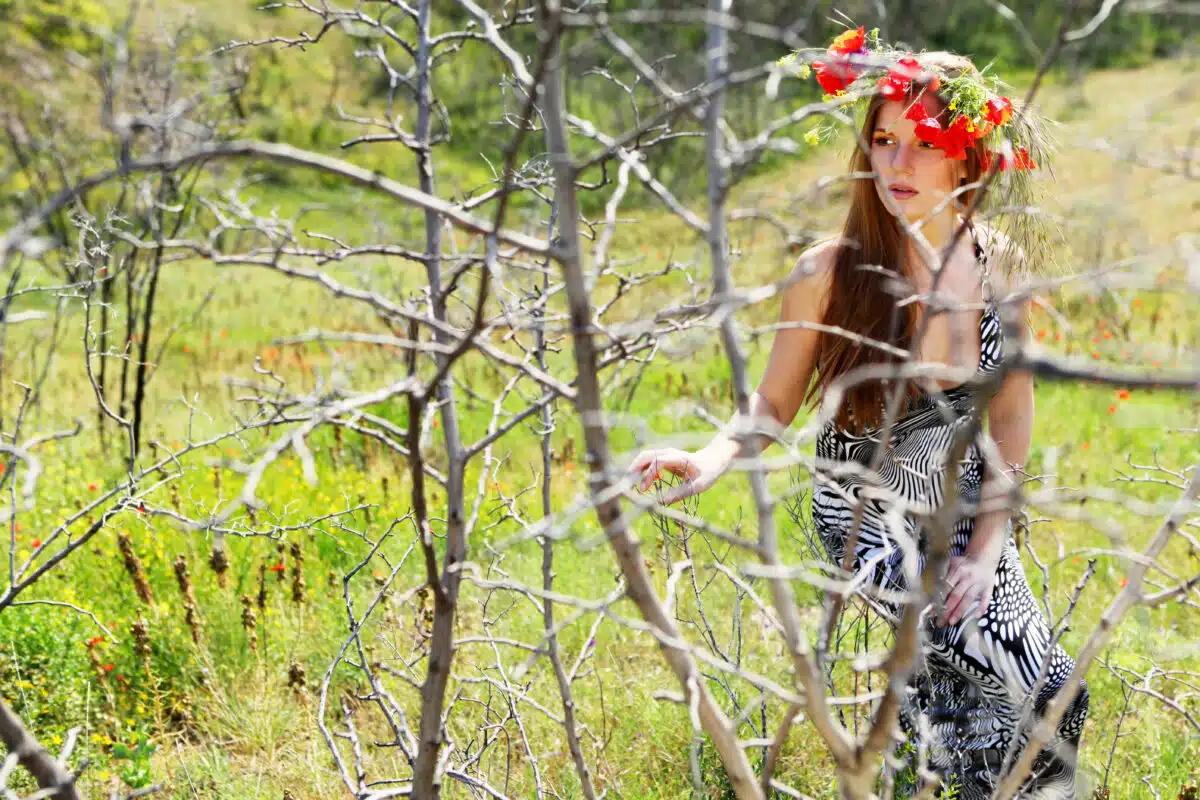Here are my favorite poems about letting someone go for her categorized:
- Short poems about letting go for her
- Famous poems about letting go for her
- Letting you go poems for her
- Poems about letting go of love for her
- Poems about letting go of someone who died for her
So if you’re looking for the best poems about letting someone go for her, then you’re in the right place.
Let’s jump right in!
- 43 Thoughtful Poems About Ex Girlfriends
- 109 Soulful Love Poems of All Time for Her
- 41 Intimate Poems About Ex Lovers for Her
- 73 Charming Love Poems For Girlfriends
- 127 Luring Love Poems For Her

Brave Poems About Letting Someone Go for Her

Letting someone go is one of the most courageous and bittersweet acts of love.
In the realm of poetry, this act becomes a canvas for emotions to dance and words to sing.
This collection of bravest poems about letting someone go capture the essence of strength, vulnerability, and growth.
They are the lyrical melodies that echo the pain of farewell, while also celebrating the liberation that comes with setting free a love that was never meant to be contained.
So, let us embark on a poetic journey that will touch our hearts and remind us that sometimes, parting ways is the bravest choice we can make.
Let’s get right into it!
My #1 Favorite Poem About Letting Someone Go for Her

“Desolation” by Ella Wheeler Wilcox
I think that the bitterest sorrow or pain
Of love unrequited, or cold death’s woe,
Is sweet compared to that hour when we know
That some grand passion is on the wane;
When we see that the glory and glow and grace
Which lent a splendor to night and day
Are surely fading, and showing the gray
And dull groundwork of the commonplace;
When fond expressions on dull ears fall,
When the hands clasp calmly without one thrill,
When we cannot muster by force of will
The old emotions that came at call;
When the dream has vanished we fain would keep,
When the heart, like a watch, runs out of gear,
And all the savor goes out of the year,
Oh, then is the time—if we can—to weep!
But no tears soften this dull, pale woe;
We must sit and face it with dry, sad eyes.
If we seek to hold it, the swifter joy flies—
We can only be passive, and let it go.
Why Is “Desolation” My Favorite Poem About Letting Someone Go for Her

“Desolation” reminds me of how someone can still feel lonely and desperate despite being in a relationship.
Unfortunately, the only way to somewhat ease this sense of emptiness is to bravely confront reality and let go of these feelings.
Dwelling in this emotional state will only diminish the little joy that remains.
At some point in our lives, there will come a time when letting go of someone means choosing to leave in order to preserve the affection and respect that still exist in our relationship with that person.
Wilcox portrays a desolate landscape and employs vivid imagery to convey how unrequited love relationships serve as a strong reminder, particularly to women, to believe in their inner power and learn to let go and move forward.
Short Poems About Letting Go for Her

Let’s savor the bittersweet taste of freedom from releasing what once had a hold on us.
The following short poems will take you on journey through love, parting, and finally, freedom!
“Parting” by Louise Chandler Moulton
‘Tis you, not I, have chosen. Love, go free!
No cry of mine shall stop you on your way.
I wept above the dead Past yesterday,
Let it lie now where all fair dead things be,
Beneath the waves of Time’s all-whelming sea.
Forget it or remember—come what may
The time is past when one could bid it stay;
What boots it any more to you or me?
It was my life—what matter—I am dead,
And if I seem to move or speak, or smile,
If some strange round of being still I tread,
And am not buried, for a little while,
Yet, look you, Love, I am not what I seem,
I died when died my faith in that dear dream.
“We Outgrow Love Like Other Things” by Emily Elizabeth Dickinson
We outgrow love like other things
And put it in the drawer,
Till it an antique fashion shows
Like costumes grandsires wore.
“Fare The Well, Love” by George Pope Morris
Fare thee well, love!—We must sever!
Nor for years, love; but for ever!
We must meet no more—or only
Meet as strangers—sad and lonely.
Fare thee well!
Fare thee well, love!—How I languish
For the cause of all my anguish!
None have ever met and parted
So forlorn and broken-hearted.
are thee well!
Fare thee well, love—Till I perish
All my truth for thee I’ll cherish;
And, when thou my requiem hearest,
Know till death I loved thee, dearest.
Fare thee well!

“Farewell” by Nora Pembroke (Margaret Moran Dixon McDougall)
My brother George has gone from me,
Far away o’er the trackless sea.
His gladdening voice I hear not now,
I see not the light of his sunny brow.
My cheeks with lonely tears are wet;
But go where he will he will love me yet.
O Thou whose blessings the heart enlarge,
Keep from all evil my brother George!
“Consolation” by Aleksandr Sergeevich Pushkin (Ivan Panin, Translator)
Life,—does it disappoint thee?
Grieve not, nor be angry thou!
In days of sorrow gentle be:
Come shall, believe, the joyful day.
In the future lives the heart:
Is the present sad indeed?
‘T is but a moment, all will pass;
Once in the past, it shall be dear.
Famous Poems About Letting Go for Her

Indulge yourself in these empowering verses from some of the most renowned poets throughout history.
Brace yourself for an exhilarating roller coaster of emotions as we explore themes of pain, loss, and letting go through the lens of these famous classics.
“Come, Let Us Kisse And Parte” by Michael Drayton
Since there’s no helpe,—come, let us kisse and parte,
Nay, I have done,—you get no more of me;
And I am glad,—yea, glad with all my hearte,
That thus so cleanly I myselfe can free.
Shake hands forever!—cancel all our vows;
And when we meet at any time againe,
Be it not seene in either of our brows,
That we one jot of former love retaine.
Now—at the last gaspe of Love’s latest breath—
When, his pulse failing, Passion speechless lies;
When Faith is kneeling by his bed of death,
And Innocence is closing up his eyes,
Now! if thou wouldst—when all have given him over—
From death to life thou mightst him yet recover.
“We Parted In Silence” by Julia (Or Louisa Macartney) Crawford
We parted in silence, we parted by night,
On the banks of that lonely river;
Where the fragrant limes their boughs unite,
We met—and we parted forever!
The night-bird sung, and the stars above
Told many a touching story,
Of friends long passed to the kingdom of love,
Where the soul wears its mantle of glory.
We parted in silence,—our cheeks were wet
With the tears that were past controlling;
We vowed we would never, no, never forget,
And those vows at the time were consoling;
But those lips that echoed the sounds of mine
Are as cold as that lonely river;
And that eye, that beautiful spirit’s shrine,
Has shrouded its fires forever.
And now on the midnight sky I look,
And my heart grows full of weeping;
Each star is to me a sealèd book,
Some tale of that loved one keeping.
We parted in silence,—we parted in tears,
On the banks of that lonely river:
But the odor and bloom of those bygone years
Shall hang o’er its waters forever.
“You Will Forget Me” by Ella Wheeler Wilcox
You will forget me. The years are so tender,
They bind up the wounds which we think are so deep;
This dream of our youth will fade out as the splendor
Fades from the skies when the sun sinks to sleep;
The cloud of forgetfulness, over and over
Will banish the last rosy colors away,
And the fingers of time will weave garlands to cover
The scar which you think is a life-mark to-day.
You will forget me. The one boon you covet
Now above all things will soon seem no prize;
And the heart, which you hold not in keeping to prove it
True or untrue, will lose worth in your eyes.
The one drop to-day, that you deem only wanting
To fill your life-cup to the brim, soon will seem
But a valueless mite; and the ghost that is haunting
The aisles of your heart will pass out with the dream.
You will forget me; will thank me for saying
The words which you think are so pointed with pain.
Time loves a new lay; and the dirge he is playing
Will change for you soon to a livelier strain.
I shall pass from your life—I shall pass out forever,
And these hours we have spent will be sunk in the past.
Youth buries its dead; grief kills seldom or never,
And forgetfulness covers all sorrows at last.

“If You Should Go” by Countee Cullen
Love, leave me like the light,
The gently passing day;
We would not know, but for the night,
When it has slipped away.
So many hopes have fled,
Have left me but the name
Of what they were. When love is dead,
Go thou, beloved, the same.
Go quietly; a dream
When done, should leave no trace
That it has lived, except a gleam
Across the dreamer’s face.
“Good-By” by Marietta Holley
Again I see that May moon shine,
Dost thou remember, soul of mine?
I held your hand in mine, you know,
And as I bent to whisper low,
A tender light was in your eye,
“Sweetheart, good-by, sweetheart, good-by.”
There came a time my lips were white
Beneath the pale and cold moonlight,
And burning words I might not speak,
You read, love, in my ashen cheek,
As my whole heart breathed in this one cry,
“Sweetheart, good-by, sweetheart, good-by.”
Time’s waves that roll so swift and fleet
Have borne you far from me, my sweet,
Have borne you to a sunny bay,
Where brightest sunshine gilds your way,
Do these words ever dim your sky–
Sweetheart, good-by, sweetheart, good-by?
I cannot tell, but this I know
They go with me where’er I go,
I hear them in the crowded mart,
At midnight lone, they chill my heart–
They dim for me the earth and sky,
Sweetheart, good-by, sweetheart good-by.
And in that hour of mystery,
When loved ones shall bend over me,
Near ones to kiss my lips and weep,
As nearer steals the dreamless sleep,
From all I’ll turn with this last sigh,
“Sweetheart, good-by, sweetheart, good-by.”
“Sonnet IV” by Edna St. Vincent Millay
I shall forget you presently, my dear,
So make the most of this, your little day,
Your little month, your little half a year
Ere I forget, or die, or move away,
And we are done forever; by and by
I shall forget you, as I said, but now,
If you entreat me with your loveliest lie
I will protest you with my favorite vow.
I would indeed that love were longer-lived,
And vows were not so brittle as they are,
But so it is, and nature has contrived
To struggle on without a break thus far,—
Whether or not we find what we are seeking
Is idle, biologically speaking.

“Renunciation” by Emily Dickinson
There came a day at summer’s full
Entirely for me;
I thought that such were for the saints,
Where revelations be.
The sun, as common, went abroad,
The flowers, accustomed, blew,
As if no soul the solstice passed
That maketh all things new.
The time was scarce profaned by speech;
The symbol of a word
Was needless, as at sacrament
The wardrobe of our Lord.
Each was to each the sealed church,
Permitted to commune this time,
Lest we too awkward show
At supper of the Lamb.
The hours slid fast, as hours will,
Clutched tight by greedy hands;
So faces on two decks look back,
Bound to opposing lands.
And so, when all the time had failed,
Without external sound,
Each bound the other’s crucifix,
We gave no other bond.
Sufficient troth that we shall rise —
Deposed, at length, the grave —
To that new marriage, justified
Through Calvaries of Love!
“Nothing Gold Can Stay” by Robert Lee Frost
Nature’s first green is gold,
Her hardest hue to hold.
Her early leaf’s a flower;
But only so an hour.
Then leaf subsides to leaf.
So Eden sank to grief,
So dawn goes down to day.
Nothing gold can stay.
Letting You Go Poems for Her

Unleash the courage to let someone go through these intricately written works of our beloved poets.
These verses capture the bittersweet essence of parting ways, offering solace and understanding to those who have experienced the tender ache of bidding farewell to someone dear.
“Not Quite The Same” by Ella Wheeler Wilcox
Not quite the same the spring-time seems to me,
Since that sad season when in separate ways
Our paths diverged. There are no more such days
As dawned for us in that lost time when we
Dwelt in the realm of dreams, illusive dreams;
Spring may be just as fair now, but it seems
Not quite the same.
Not quite the same is life, since we two parted,
Knowing it best to go our ways alone.
Fair measures of success we both have known,
And pleasant hours, and yet something departed
Which gold, nor fame, nor anything we win
Can all replace. And either life has been
Not quite the same.
Love is not quite the same, although each heart
Has formed new ties that are both sweet and true,
But that wild rapture, which of old we knew,
Seems to have been a something set apart
With that lost dream. There is no passion, now,
Mixed with this later love, which seems, somehow,
Not quite the same.
Not quite the same am I. My inner being
Reasons and knows that all is for the best.
Yet vague regrets stir always in my breast,
As my soul’s eyes turn sadly backward, seeing
The vanished self that evermore must be,
This side of what we call eternity,
Not quite the same.
“Her Last Words” by Unknown
No! let me alone— ‘t is better so,
My way and yours are widely far apart.
Why should you stop to grieve about my woe?
And why should I not step across your heart?
A man’s heart is a poor thing at the best,
And yours is no whit better than the rest.
I loved you once! Ah, yes! Perhaps, I did.
Women are curious things, you know, and
strange,
And hard to understand, and then besides,
The key of her soul’s music oft doth change,
And so — ah ! do not look at me that way!
I loved you once, but that was yesterday!
Sometimes a careless word doth rankle deep
So deep that it can change a heart like this,
And blot out all the long sweet throbbing hours
That went before, crowned gold with rap turous bliss;
So deep that it can blot out hours divine,
And make a heart as hard and cold as mine.
Nay, do not speak. I never can forget;
So let us say good-by, and go our ways.
Mayhap the pansies will start from the dust
Of our past days — the slumbrous, happy days
When I was trusting, and life knew no grief,
But blossomed with my clinging, sweet belief.
Good-by! Good-by! Part of my life you take.
Its fairest part. Nay, do not touch my lips.
Once they were yours, but now, oh, my lost love!
I would not have you touch my finger tips,
And saying this I feel no chill of pain,
I cannot even weep above my slain.
If God cares aught for women who have loved
And worshipped idols false, I trust he will
Keep us so far apart that never more
Our paths may cross . Why are you standing still?
Good-by, I say. This is the day’s dim close;
Our love is no more worth than last year’s rose.
“Dedication” by Robert Louis Stevenson
My first gift and my last, to you
I dedicate this fascicle of songs—
The only wealth I have:
Just as they are, to you.
I speak the truth in soberness, and say
I had rather bring a light to your clear eyes,
Had rather hear you praise
This bosomful of songs
Than that the whole, hard world with one consent,
In one continuous chorus of applause
Poured forth for me and mine
The homage of ripe praise.
I write the finis here against my love,
This is my love’s last epitaph and tomb.
Here the road forks, and I
Go my way, far from yours.

“Go, Then—’Tis Vain” by Thomas Moore
Go, then—’tis vain to hover
Thus round a hope that’s dead;
At length my dream is over;
‘Twas sweet—’twas false—’tis fled!
Farewell! since naught it moves thee,
Such truth as mine to see—
Some one, who far less loves thee,
Perhaps more blest will be.
Farewell, sweet eyes, whose brightness
New life around me shed;
Farewell, false heart, whose lightness
Now leaves me death instead.
Go, now, those charms surrender
To some new lover’s sigh—
One who, tho’ far less tender,
May be more blest than I.
“Farewell” by Laurence Hope (Adela Florence Cory Nicolson)
Farewell, Aziz, it was not mine to fold you
Against my heart for any length of days.
I had no loveliness, alas, to hold you,
No siren voice, no charm that lovers praise.
Yet, in the midst of grief and desolation,
Solace I my despairing soul with this:
Once, for my life’s eternal consolation,
You lent my lips your loveliness to kiss.
Ah, that one night! I think Love’s very essence
Distilled itself from out my joy and pain,
Like tropical trees, whose fervid inflorescence
Glows, gleams, and dies, never to bloom again.
Often I marvel how I met the morning
With living eyes after that night with you,
Ah, how I cursed the wan, white light for dawning,
And mourned the paling stars, as each withdrew!
Yet I, even I, who am less than dust before you,
Less than the lowest lintel of your door,
Was given one breathless midnight, to adore you.
Fate, having granted this, can give no more!
“Parting” by Clara D. Maclean
Come, let us shake hands and say good-bye!
(There is no need to cry:
All the old wounds are healed: these are but scars.)
Let the meridians rise like iron bars
“Twixt the freed captive and his prison cell
That he had almost learned to love too well.
“Twill give his freedom zest:
I to the east will go, if you go west!
Through various scenes, in storm and sunny weather,
We’ve been together;
Yet now we are to part, and these things seem
The fragments of a dream
Which comes at dawn, vivid, and warm, and still,
Setting the passionate pulses all athrill ;
Such dreams the senses sate,
Let us awake before it is too late!
We loved, or thought we loved. “Tis all the same
There’s nobody to blame;
Our wasted tears but briny water were,
Our sight but empty air;
All was as idle as a twice-told tale,
And words of yours or mine cannot avail,
Or restitution make.
It was-it is-’twill still be a mistake.

“Our Own” by Mary Clemmer
If I had known in the morning,
How wearily all the day
The words unkind would trouble my mind
That I said when you went away,
I had been more careful, darling,
Nor given you needless pain;
But—we vex our own with look and tone
We might never take back again.
For though in the quiet evening
You may give me the kiss of peace,
Yet it well might be that never me
The pain of the heart should cease!
How many go forth in the morning
Who never come home at night,
And hearts have been broken for harsh words
spoken
That sorrow can ne’er set right.
Good-by, Sweetheart. We seem to part;
Yet still within my inmost heart
Thou goest with me. Still my place
I hold in thine by love’s dear grace;
Yet all my life seems going out,
As slow I turn my face about
To go alone another way,—
To be alone till life’s last day,
Unless thy smile can light my way.
Good-by, Sweetheart. The dreaded dawn
That tells our love’s long tryst is gone
Is purpling all the pallid sky
As loud I sigh, Sweetheart, good-by!
“Adieu” by George Wilmot Harris
With what sad heart, O love, I say
The words that cause me bitter pain,
With what sad heart I go away—
Who knows, shall I return again?
And yet, O love, they must be spoken,
Tho’ lives are wrecked and hearts be broken
And so, adieu, my love, adieu,
Believe me, I can say no more;
My life is full of love for you—
It holds within no other lore.
And yet, O love, I say adieu
To keep the world and give up you.
And many a day and many a night,
The heart will ache and tears will blind,
For all my life and its delight
Are in the world I leave behind;
And so, adieu, my love, my own
I face the bitter world alone!
But you will miss me, will you not?
Mayhap as much as I will you;
‘Tis not so easy as you thought
To say, “Adieu, my love, adieu!
For if we stop to count the cost
Without the one the other’s lost.
“I Know I Have Been Happiest” by Dorothy Parker
I know I have been happiest at your side;
But what is done, is done, and all’s to be.
And small the good, to linger dolefully,—
Gaily it lived, and gallantly it died.
I will not make you songs of hearts denied,
And you, being man, would have no tears of me,
And should I offer you fidelity,
You’d be, I think, a little terrified.
Yet this the need of woman, this her curse:
To range her little gifts, and give, and give,
Because the throb of giving’s sweet to bear.
To you, who never begged me vows or verse,
My gift shall be my absence, while I live;
But after that, my dear, I cannot swear.

“The Choice” by Dorothy Parker
He’d have given me rolling lands,
Houses of marble, and billowing farms,
Pearls, to trickle between my hands,
Smoldering rubies, to circle my arms.
You––you’d only a lilting song,
Only a melody, happy and high,
You were sudden and swift and strong,––
Never a thought for another had I.
He’d have given me laces rare,
Dresses that glimmered with frosty sheen,
Shining ribbons to wrap my hair,
Horses to draw me, as fine as a queen.
You––you’d only to whistle low,
Gaily I followed wherever you led.
I took you, and I let him go,––
Somebody ought to examine my head!
“Fate Knows No Tears” by Laurence Hope (Adela Florence Cory Nicolson)
Just as the dawn of Love was breaking
Across the weary world of grey,
Just as my life once more was waking
As roses waken late in May,
Fate, blindly cruel and havoc-making,
Stepped in and carried you away.
Memories have I none in keeping
Of times I held you near my heart,
Of dreams when we were near to weeping
That dawn should bid us rise and part;
Never, alas, I saw you sleeping
With soft closed eyes and lips apart,
Breathing my name still through your dreaming. –
Ah! had you stayed, such things had been!
But Fate, unheeding human scheming,
Serenely reckless came between –
Fate with her cold eyes hard and gleaming
Unseared by all the sorrow seen.
Ah! well-beloved, I never told you,
I did not show in speech or song,
How at the end I longed to fold you
Close in my arms; so fierce and strong
The longing grew to have and hold you,
You, and you only, all life long.
They who know nothing call me fickle,
Keen to pursue and loth to keep.
Ah, could they see these tears that trickle
From eyes erstwhile too proud to weep.
Could see me, prone, beneath the sickle,
While pain and sorrow stand and reap!
Unopened scarce, yet overblown, lie
The hopes that rose-like round me grew,
The lights are low, and more than lonely
This life I lead apart from you.
Come back, come back! I want you only,
And you who loved me never knew.
You loved me, pleaded for compassion
On all the pain I would not share;
And I in weary, halting fashion
Was loth to listen, long to care;
But now, dear God! I faint with passion
For your far eyes and distant hair.
Yes, I am faint with love, and broken
With sleepless nights and empty days;
I want your soft words fiercely spoken,
Your tender looks and wayward ways –
Want that strange smile that gave me token
Of many things that no man says.
Cold was I, weary, slow to waken
Till, startled by your ardent eyes,
I felt the soul within me shaken
And long-forgotten senses rise;
But in that moment you were taken,
And thus we lost our Paradise!
Farewell, we may not now recover
That golden “Then” misspent, passed by,
We shall not meet as loved and lover
Here, or hereafter, you and I.
My time for loving you is over,
Love has no future, but to die.
And thus we part, with no believing
In any chance of future years.
We have no idle self-deceiving,
No half-consoling hopes and fears;
We know the Gods grant no retrieving
A wasted chance. Fate knows no tears.
Poems About Letting Go of Love for Her

Discover the art of letting love go through the inspiring words of our favorite poets!
These poetic words capture the poignant moments of release, where love takes flight from the heart’s gentle embrace, leaving behind memories that linger in the softest sighs.
“Farewell” by Marietta Holley
Lift up your brown eyes, darling,
Not timidly and shy,
As in the fair, lost past, not thus
I’d have you meet my eye.
But grave, and calm, and earnest,
Thus bravely should we part,
Not sorrowfully, not lightly,
And so farewell, dear heart.
Yes, fare thee well, farewell,
Whate’er shall me betide
May gentlest angels comfort thee,
And peace with thee abide;
Our love was but a stormy love,
‘Tis your will we should part –
So smile upon me once, darling,
And then farewell, dear heart.
But lay your hand once on my brow,
Set like a saintly crown,
It will shield me, it will help me
To hurl temptations down.
God give thee better love than mine –
Nay, dear, no tears must start,
See, I am quiet, thou must be,
And now farewell, dear heart.
“Change” by Ella Wheeler Wilcox
Changed? Yes, I will confess it—I have changed.
I do not love in the old fond way.
I am your friend still—time has not estranged
One kindly feeling of that vanished day.
But the bright glamour which made life a dream,
The rapture of that time, its sweet content,
Like visions of a sleeper’s brain they seem—
And yet I cannot tell you how they went.
Why do you gaze with such accusing eyes
Upon me, dear? Is it so very strange
That hearts, like all things underneath God’s skies
Should sometimes feel the influence of change?
The birds, the flowers, the foliage of the trees,
The stars which seem so fixed and so sublime,
Vast continents and the eternal seas—
All these do change with ever-changing time.
The face our mirror shows us year on year
Is not the same; our dearest aim or need,
Our lightest thought or feeling, hope or fear,
All, all the law of alteration heed.
How can we ask the human heart to stay
Content with fancies of Youth’s earliest hours?
The year outgrows the violets of May,
Although, maybe, there are no fairer flowers.
And life may hold no sweeter love than this,
Which lies so cold, so voiceless, and so dumb.
And shall I miss it, dear? Why, yes, we miss
The violets always—till the roses come!
“Blighted Love” by Luis De Camoens (Lord Strangford, Translator)
Flowers are fresh, and bushes green,
Cheerily the linnets sing;
Winds are soft, and skies serene;
Time, however, soon shall throw
Winter’s snow
O’er the buxom breast of Spring!
Hope, that buds in lover’s heart,
Lives not through the scorn of years;
Time makes love itself depart;
Time and scorn congeal the mind,—
Looks unkind
Freeze affection’s warmest tears.
Time shall make the bushes green;
Time dissolve the winter snow;
Winds be soft, and skies serene;
Linnets sing their wonted strain:
But again
Blighted love shall never blow!

“After Love” by Sara Teasdale
There is no magic any more,
We meet as other people do,
You work no miracle for me
Nor I for you.
You were the wind and I the sea,
There is no splendor any more,
I have grown listless as the pool
Beside the shore.
But though the pool is safe from storm
And from the tide has found surcease,
It grows more bitter than the sea,
For all its peace.
“Time And Love” by Ella Wheeler Wilcox
Time flies. The swift hours hurry by
And speed us on to untried ways;
New seasons ripen, perish, die,
And yet love stays.
The old, old love—like sweet, at first,
At last like bitter wine—
I know not if it blest or curst
Thy life and mine.
Time flies. In vain our prayers, our tears!
We cannot tempt him to delays;
Down to the past he bears the years,
And yet love stays.
Through changing task and varying dream
We hear the same refrain,
As one can hear a plaintive theme
Run through each strain.
Time flies. He steals our pulsing youth;
He robs us of our care-free days;
He takes away our trust and truth:
And yet love stays.
O Time! take love! When love is vain,
When all its best joys die—
When only its regrets remain—
Let love, too, fly.
“An Answer” by Ella Wheeler Wilcox
If all the year was summer time,
And all the aim of life
Was just to lilt on like a rhyme,
Then I would be your wife.
If all the days were August days,
And crowned with golden weather,
How happy then through green-clad ways
We two could stray together!
If all the nights were moonlit nights,
And we had naught to do
But just to sit and plan delights,
Then I would wed with you.
If life was all a summer fete,
Its soberest pace the “glide,”
Then I would choose you for my mate,
And keep you at my side.
But winter makes full half the year,
And labor half of life,
And all the laughter and good cheer
Give place to wearing strife.
Days will grow cold, and moons wax old.
And then a heart that’s true
Is better far than grace or gold—
And so, my love, adieu!
I cannot wed with you.

“When Love Is Lost” by Ella Wheeler Wilcox
When love is lost, the day sets towards the night,
Albeit the morning sun may still be bright,
And not one cloud-ship sails across the sky.
Yet from the places where it used to lie
Gone is the lustrous glory of the light.
No splendour rests in any mountain height,
No scene spreads fair and beauteous to the sight;
All, all seems dull and dreary to the eye
When love is lost.
Love lends to life its grandeur and its might;
Love goes, and leaves behind it gloom and blight;
Like ghosts of time the pallid hours drag by,
And grief’s one happy thought is that we die.
Ah, what can recompense us for its flight
When love is lost?
“Farewell” by Anne Brontë
Farewell to thee! but not farewell
To all my fondest thoughts of thee:
Within my heart they still shall dwell;
And they shall cheer and comfort me.
O, beautiful, and full of grace!
If thou hadst never met mine eye,
I had not dreamed a living face
Could fancied charms so far outvie.
If I may ne’er behold again
That form and face so dear to me,
Nor hear thy voice, still would I fain
Preserve, for aye, their memory.
That voice, the magic of whose tone
Can wake an echo in my breast,
Creating feelings that, alone,
Can make my tranced spirit blest.
That laughing eye, whose sunny beam
My memory would not cherish less;
And oh, that smile! whose joyous gleam
Nor mortal language can express.
Adieu, but let me cherish, still,
The hope with which I cannot part.
Contempt may wound, and coldness chill,
But still it lingers in my heart.
And who can tell but Heaven, at last,
May answer all my thousand prayers,
And bid the future pay the past
With joy for anguish, smiles for tears?
“Finis” by Waring Cuney
Now that our love has drifted
To a quiet close,
Leaving the empty ache
That always follows when beauty goes;
Now that you and I,
Who stood tip-toe on earth
To touch our fingers to the sky,
Have turned away
To allow our little love to die—
Go, dear, seek again the magic touch.
But if you are wise,
As I shall be wise,
You will not again
Love over much.

“For Who?” by Mary Weston Fordham
When the heavens with stars are gleaming
Like a diadem of light,
And the moon’s pale rays are streaming,
Decking earth with radiance bright;
When the autumn’s winds are sighing,
O’er the hill and o’er the lea,
When the summer time is dying,
Wanderer, wilt thou think of me?
When thy life is crowned with gladness,
And thy home with love is blest,
Not one brow o’ercast with sadness,
Not one bosom of unrest—
When at eventide reclining,
At thy hearthstone gay and free,
Think of one whose life is pining,
Breathe thou, love, a prayer for me.
Should dark sorrows make thee languish,
Cause thy cheek to lose its hue,
In the hour of deepest anguish,
Darling, then I’ll grieve with you.
Though the night be dark and dreary,
And it seemeth long to thee,
I would whisper, “be not weary;”
I would pray love, then, for thee.
Well I know that in the future,
I may cherish naught of earth;
Well I know that love needs nurture,
And it is of heavenly birth.
But though ocean waves may sever
I from thee, and thee from me,
Still this constant heart will never,
Never cease to think of thee.
“Words For Parting” by Mary Clemmer
Oh, what shall I do, dear,
In the coming years, I wonder,
When our paths which lie so sweetly near,
Shall lie so far asunder?
Oh, what shall I do, dear,
Through all the sad to- morrows,
When the sunny smile has ceased to cheer
That smiles away my sorrows?
What shall I do, my friend,
When you are gone forever?
My heart its eager need will send
Through the years, to find you never.
And how will it be with you,
In the weary world, I wonder!
Will you love me with a love as true,
When our paths lie far asunder?
A sweeter, sadder thing,
My life for having known you:
Forever with my sacred kin,
My soul’s soul I must own you,—
Forever mine, my friend ,
From June to life’s December,
Not mine to have or hold,
But to pray for and remember.
The way is short, O friend,
That reaches out before us.
God’s tender heavens above us bend,
His love is smiling o’er us.
A little while is ours,
For sorrow or for laughter:
I’ll lay the hand you love in yours,
On the shore of the hereafter.
“Sweetheart” by Unknown
The sun fades out of the purple West,
The sleepy songsters have gone to rest,
The dew is over the rose’s breast,
Dear love—good-by!
The shadows lengthen down the lane,
The crickets whistle a shrill refrain,
Sad night approaches with starry train,
Dear love—good-by!
The cold stars twinkle in yon blue sky,
So clear and silent, so vast and high,
The moon’s cloud chariot rolleth by,
Sweetheart—farewell!
Day will dawn chill in the pallid morn,
No roseate flushes the East adorn.
So my days without thee will be all forlorn,
Sweetheart—farewell!
O blue eyes, weave ye no sorrowful spell ;
O red lips, frame ye no sad farewell ;
O true heart, love’s sweet story tell ,
Sweetheart—good-by.

“Buried Love” by Sara Teasdale
I have come to bury Love
Beneath a tree,
In the forest tall and black
Where none can see.
I shall put no flowers at his head,
Nor stone at his feet,
For the mouth I loved so much
Was bittersweet.
I shall go no more to his grave,
For the woods are cold.
I shall gather as much of joy
As my hands can hold.
I shall stay all day in the sun
Where the wide winds blow,—
But oh, I shall cry at night
When none will know.
“At Parting” by Madison Julius Cawein
What is there left for us to say,
Now it is time to speak good-by?
And all our dreams of yesterday
Are one with yester-evening’s sky—
What is there left for us to say,
Now different ways before us lie?
A word of hope, a word of cheer,
A word of love, whose help shall last,
When we are far to bring us near
Through memories of the happy past;
A word of hope, a word of cheer,
To keep our young hearts true and fast.
What is there left for us to do,
Now it is time to say farewell?
And care, that bade us once adieu,
Returns again with us to dwell—
What is there left for us to do,
Now different ways our fates compel?
Clasp hands and kiss, touch lips and smile,
And look the love that shall remain—
When severed so by many a mile—
The sweetest balm for bitterest pain:
Clasp hands and kiss, touch lips and smile,
And trust to God to meet again.
Poems About Letting Go of Someone Who Died for Her

Losing someone dear to us is a heart-wrenching experience, and finding the strength to let go can be incredibly challenging.
These warm and consoling poems will help us explore grief and the healing power of releasing our loved ones, honoring their memory while embracing the process of moving forward.
“Adieu” by Thomas Carlyle
Let time and chance combine, combine,
Let time and chance combine;
The fairest love from heaven above,
That love of yours was mine,
My dear,
That love of yours was mine.
The past is fled and gone, and gone,
The past is fled and gone;
If nought but pain to me remain,
I’ll fare in memory on,
My dear,
I’ll fare in memory on.
The saddest tears must fall, must fall,
The saddest tears must fall;
In weal or woe, in this world below,
I love you ever and all,
My dear,
I love you ever and all.
A long road full of pain, of pain,
A long road full of pain;
One soul, one heart, sworn ne’er to part,—
We ne’er can meet again,
My dear,
We ne’er can meet again.
Hard fate will not allow, allow,
Hard fate will not allow;
We blessed were as the angels are,—
Adieu forever now,
My dear,
Adieu forever now.
“For the Last Time” by Edith Sessions Tupper
I shut the door and I am now alone-
Alone with that still form upon the bed,
I draw the curtains back, but make no moan
As I look down on my beloved dead.
Mine now. O, surely I may call thee so!
Nowthat the fret of life for thee is o’er.
Quiet and cold thou liest there so low,
And thou wilt speak to me no more, no more.
For the last time I come to look on thee,
To stamp upon my aching heart thy charms,
And as a memory to take with me,
Hold thy dead form once more within my arms.
One last long kiss upon thy lips I lay;
May angels speed thee to a brighter clime.
Farewell forever. Now I turn away-
O sweet, dead love! this is the last, last time.
“Beside the Dead” by Ina Donna Coolbrith
With hands that folded are from every task,
It must be sweet, O thou my dead, to lie
Sealed with the seal of the great mystery,—
The lips that nothing answer, nothing ask;
The life-long struggle ended; ended quite
The weariness of patience and of pain;
And the eyes closed to open not again
On desolate dawn or dreariness of night.
It must be sweet to slumber and forget;
To have the poor tired heart so still at last:
Done with all yearning, done with all regret;
Doubt, fear, hope, sorrow, all for ever past:
Past all the hours, or slow of wing or fleet—
It must be sweet, it must be very sweet!

“Fear no more the heat o’ the sun” by William Shakespeare
Fear no more the heat o’ the sun,
Nor the furious winter’s rages;
Thou thy worldly task hast done,
Home art gone, and ta’en thy wages;
Golden lads and girls all must,
As chimney-sweepers, come to dust.
Fear no more the frown o’ the great,
Thou art past the tyrant’s stroke;
Care no more to clothe and eat;
To thee the reed is as the oak:
The sceptre, learning, physic, must
All follow this, and come to dust.
Fear no more the lightning-flash,
Nor the all-dreaded thunder-stone;
Fear not slander, censure rash;
Thou hast finish’d joy and moan:
All lovers young, all lovers must
Consign to thee, and come to dust.
No exorciser harm thee!
Nor no witchcraft charm thee!
Ghost unlaid forbear thee!
Nothing ill come near thee!
Quiet consummation have;
And renownèd be thy grave!
“Grieve Not, Dear Love” by John Digby, Earl of Bristol
Grieve not, dear Love! although we often part:
But know, that Nature gently doth us sever,
Thereby to train us up, with tender art,
To brook the day when we must part for ever.
For Nature, doubting we should be surprised
By that sad day whose dread doth chiefly fear us,
Doth keep us daily schooled and exercised;
Lest that the fright thereof should overbear us!
“Ex Humo” by Anonymous
Should you dream ever of the days departed,
Of youth and morning, no more to return,—
Forget not me, so fond and passionate-hearted,
Quiet at last reposing
Under the moss and fern.
There where the fretful lake in stormy weather
Comes circling round the reddening churchyard pines,
Rest—and call back the hours we lost together
Talking of hope, and soaring
Beyond poor Earth’s confines.
If, for these heavenly dreams too dimly sighted,
You become false—why, ’tis a story old;
I, overcome by pain, and unrequited,
Faded at last, and slumber
Under the Autumn mould.
Farewell, farewell! No longer plighted lovers,
Doomed for a day to sigh for sweet return;
One lives indeed; one heart the green earth covers—
Quiet at last—reposing
Under the moss and fern.

“Consolation” by Elizabeth Barrett Browning
All are not taken; there are left behind
Living Belov’ds, tender looks to bring
And make the daylight still a happy thing,
And tender voices, to make soft the wind:
But if it were not so, if I could find
No love in all this world for comforting,
Nor any path but hollowly did ring
Where ‘dust to dust’ the love from life disjoin’d;
And if, before those sepulchres unmoving
I stood alone (as some forsaken lamb
Goes bleating up the moors in weary dearth)
Crying ‘Where are ye, O my loved and loving?’
I know a voice would sound, ‘Daughter, I am.
Can I suffice for Heaven and not for earth?’
“Farewell” by Coventry Patmore
With all my will, but much against my heart,
We two now part.
My Very Dear,
Our solace is, the sad road lies so clear.
It needs no art,
With faint, averted feet
And many a tear,
In our opposèd paths to persevere.
Go thou to East, I West.
We will not say
There ’s any hope, it is so far away.
But, O, my Best,
When the one darling of our widowhead,
The nursling Grief,
Is dead,
And no dews blur our eyes
To see the peach-bloom come in evening skies,
Perchance we may,
Where now this night is day,
And even through faith of still averted feet,
Making full circle of our banishment,
Amazèd meet;
The bitter journey to the bourne so sweet
Seasoning the termless feast of our content
With tears of recognition never dry.
